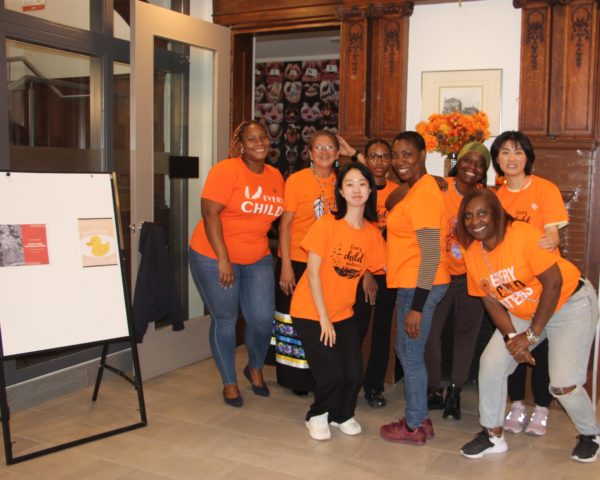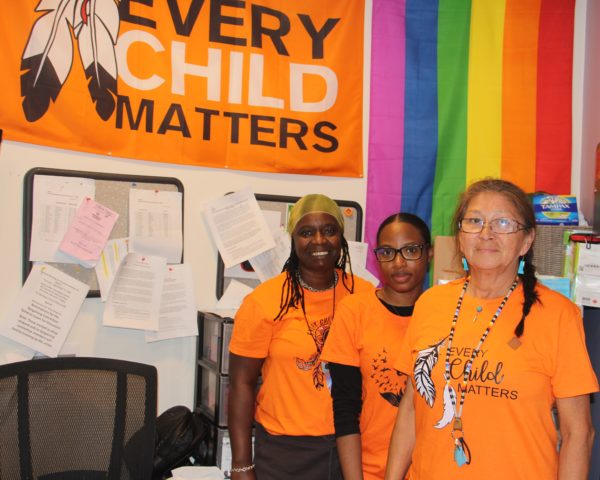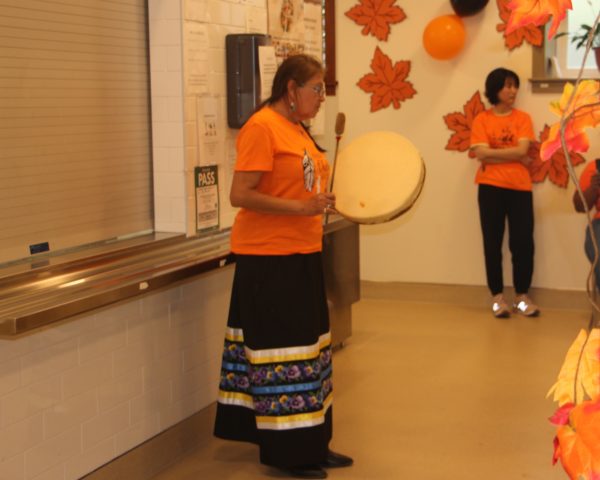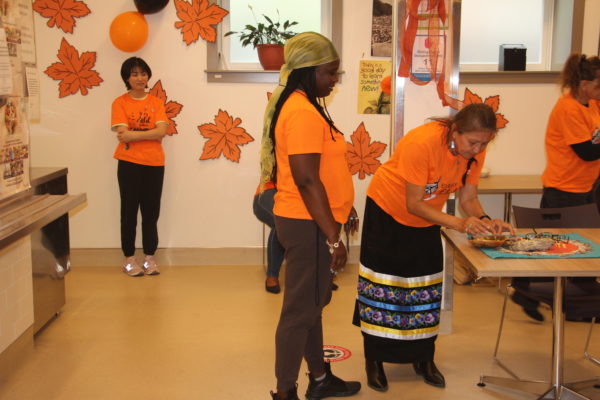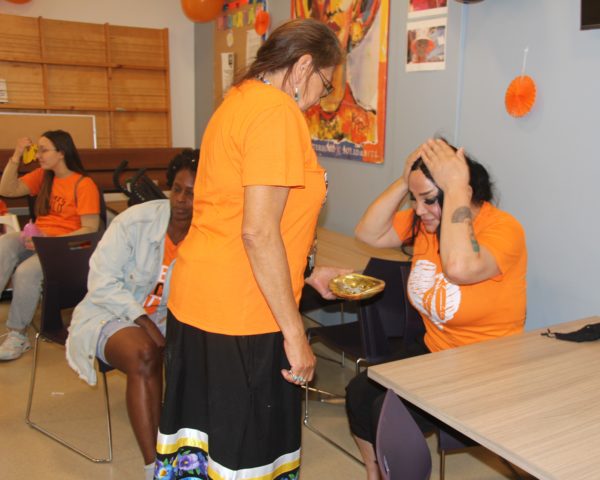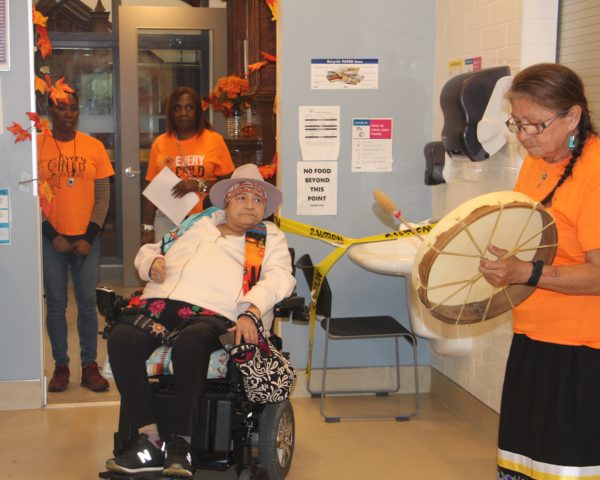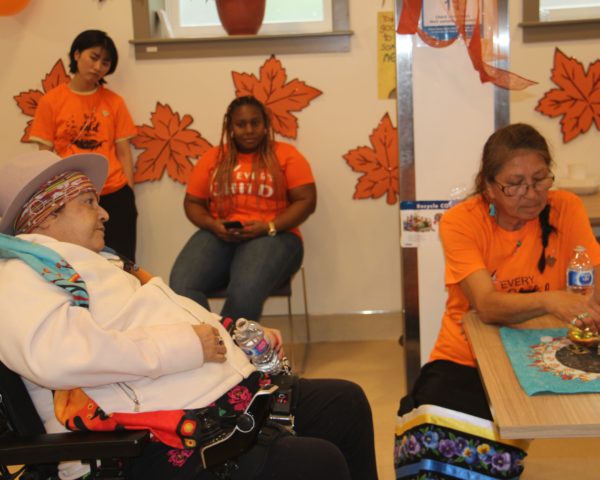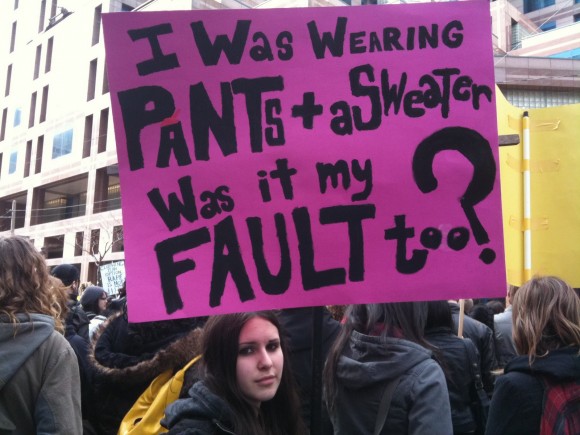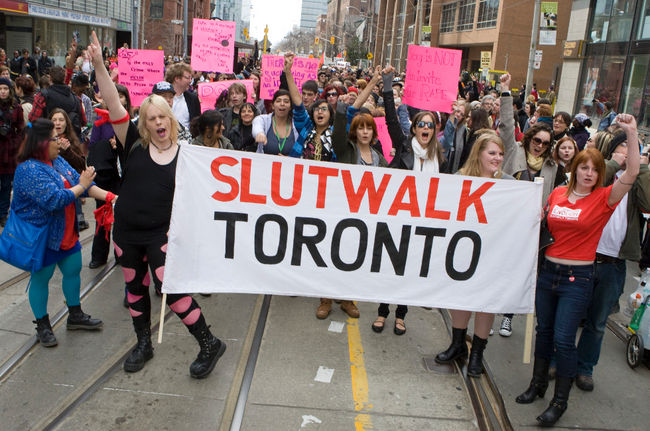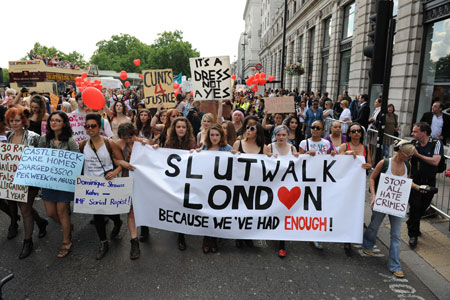Every year, September 30 marks the National Day for Truth and Reconciliation, a day for all Canadians to recognize the ongoing trauma caused by residential schools, and honour the children who never returned home, the survivors, their families and communities.
As a community-based feminist organization, which operates within an anti-racist, anti-oppression framework, it’s an opportunity for us to commit to the process of truth, reconciliation and justice with First Nations, Inuit and Metis. At Nellie’s, we are dedicated to creating social change through education and advocacy to achieve social justice for all women and their children.
This year at Nellie’s, we commemorated the day with a special event for all of the women and their children currently staying at the shelter. All of our staff, as well as the shelter residents, wore orange shirts in honour of Orange Shirt Day, an Indigenous-led grassroots commemorative day that promotes the concept of “Every Child Matters”.
Orange Shirt Day was inspired by the story of residential school survivor Phyllis Jack Webstad, who was given a new orange shirt by her grandmother before being taken to a B.C. residential school. The shirt was confiscated and destroyed by her teacher on the first day of class. Wearing an orange shirt is a symbol of the stripping away of culture, freedom and self-esteem experienced by Indigenous children over generations.
Nellie’s staff wore their orange shirts to commemorate Orange Shirt Day and worked to decorate the shelter for our event.
Nellie’s counsellor Joanna Shawana opened the event with beautiful drumming and singing.
Joanna led the group in a cultural ceremony practiced by many Indigenous Peoples in Canada called smudging. Smudging is the practice of burning various medicinal plants in a ceremony for purifying or cleansing the soul of negative thoughts of a person or place.
Guest speaker Wanda Whitebird shared a bit of history of Indigenous Peoples in Canada, colonization, and residential schools. After Wanda’s talk, we all took part in sharing food and refreshments. Joanna presented Wanda with a gift of tobacco, and we presented her with an honorarium on behalf of Nellie’s.
Thank you again to Wanda Whitebird for sharing your time and stories with us at Nellie’s. We appreciate the opportunity to learn from you.


